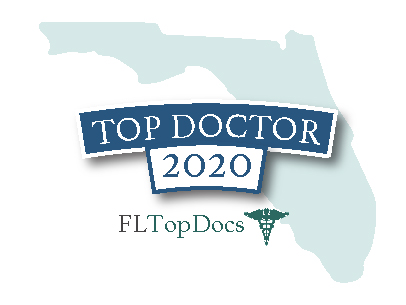Frequently Asked Questions
No surgeon can guarantee that they will always get perfect results. Our surgeons will bring to bear all of their expertise and experience to get you the best possible result. We strive for natural results that will not draw attention to the fact that you have had cosmetic surgery. Of course, you want to see results and so those around you that know you well will see some differences. These should be very positive.
Ideally, we like our patients to be near, or at, their ideal weight for height before undergoing cosmetic procedures. In the real world, this is rarely the case. The problem with gaining or losing weight after cosmetic surgery is that these shifts can alter the results of surgery and usually not in a positive way. For example, if you have a tummy tuck and lose weight afterwards, you may lose a lot of the tightening effect of that surgery. We ask patients to try to find a weight that they can feel good at and maintain without a constant struggle. We are happy to help patients at whatever weight they are at, within reason, but patients must understand that their weight will impact the result that they can reasonably obtain. Obesity not only places patients at risk for medical problems such as diabetes, hypertension, arthritis, and more, it also raises their risks for postoperative complications.
We combine these on occasion but we choose such patients very carefully. Breast implant surgery and breast lifts are very different procedures that do different things and they work counter to each other. Implants enlarge and stretch out the breasts while lifts tighten breasts and make them more compact. Doing two such opposite things together compromises both procedures and increases the risk of complications. Most of the time, when both are needed, or desired, we recommend doing the lift first and then the implant surgery a few months later. A consultation will determine if you are a candidate for a combined procedure.
This is impossible to answer precisely. Pain varies greatly among different procedures and patients' perception of pain varies greatly too. Face it, some of us are wimps when it comes to pain. Most cosmetic and reconstructive surgeries are not terribly painful because we are not working inside body cavities where pain sensation is much more pronounced. Patients have to be able to go home after nearly all of our procedures and be comfortable on oral pain medications. In some operations, we use a pain pump, which bathes the area of surgery with an anesthetic for several days. It is a rare patient that cannot be kept reasonably comfortable after surgery.
There is no age limit. More important than age is one's overall health, the problem you wish to have treated, and your expectations. We have done cosmetic procedures on patients into their 80' and even 90's. If you are healthy, have a problem we can correct, and have realistic expectations, we can offer you procedures at just about any age.
Most of our operations and procedures have a real element of permanence to them. No matter how old you get, you will also look more youthful than if you had not undergone them. Of course, we cannot stop the aging process and you will continue to experience changes that accompany aging. Some procedures, such as injection of Botox and commercial fillers, have a limited duration of action, ranging from months to years.
If you have been treated for breast cancer, federal law mandates that insurance companies that provide coverage for treatment of breast cancer also cover reconstruction. This includes not only reconstruction of the breast that had cancer but any work on the opposite breast needed to achieve a symmetrical result.
Yes, they are, but even more important than that is what they are board certified in. Our surgeons are board certified as plastic surgeons by the American Board of Plastic Surgery, the only board approved by the American Board of Medical Specialties to certify surgeons in the broad specialty of plastic surgery of the entire body. No other plastic surgery certification is as comprehensive. Many so called "board certified" cosmetic surgeons are certified by boards in specialties other than plastic surgery or are certified by boards that are not members of the American Board of Medical Specialties. Both of our surgeons were also fully trained in general surgery before they became plastic surgeons.
It depends on whether it is cosmetic or reconstructive. Cosmetic surgery, that done to improve appearances, is not covered by insurance. Reconstructive surgery to repair a deformity created by an accident, cancer surgery, congenital deformity, etc. is covered by most insurance plans. Some procedures are clearly cosmetic or reconstruction. Others are not as clear cut. We can help you determine what category you fall into.
Yes and no. Smoking is terribly harmful to your health and we encourage all of our patients to stop before surgery, hopefully forever. We will not offer certain procedures to smokers who cannot quit as the risk of complications is too high. An example is facelifts. If you wish to have a facelift, you will have to commit to stopping smoking at least 4 weeks before this surgery. Stopping smoking is one of the best things you can do to preserve your youthful looks, with or without plastic surgery.
Insurance only applies to reconstructive surgery and the answer is yes. We participate in a number of insurance programs which may vary from time to time. We belong to most of the plans accepted by our local hospitals. We do not participate in any HMO (Health Maintenance Organization) plans. You can check with your insurer to verify that we are on your panel of physicians.
This varies from procedure to procedure. In most cases, you can look very presentable in 7-10 days from facial procedures. Most patients will be advised to refrain from strenuous physical activity for 3-4 weeks. These would be activities that require that you exert serious physical effort, become out of breath, get your heart racing, or break a sweat. Patients in jobs that are not physical can sometimes return to work in a few days from many procedures. The more major the surgery, the longer the "down" time.
Most insurers will cover breast reduction if medical necessity can be shown. The "Catch-22" is meeting their definition of "medical necessity". A consultation will help us to advise you in this regard. We will contact your insurance company on your behalf to request pre-authorization for the surgery. When insurance will not cover this, or patients do not have insurance, we can offer this surgery in our in-office, state licensed surgical facility at a very reasonable fee and with all the safeguards to perform this surgery safely.
Any procedure in which you receive an anesthetic can produce nausea and, in some cases, vomiting. Because we have an ambulatory surgery facility, our patients have to be able to go home and we do not want the retching and vomiting. This is both uncomfortable and bad for future referrals. Our anesthetists are very good at medicating our patients to prevent nausea and vomiting after surgery. Nobody can absolutely guarantee that this won't happen. Some patients are just very prone to this. We have few problems with patients having a lot of postoperative nausea.
This is a complex question. Check out Dr. Bosshardt's blog on sizing patients for breast implants.
Yes, in some cases. If the upper eyelids are drooping sufficiently to affect one's upper visual field, insurance will sometimes cover removal of the drooping skin. You need to have a taped and un-taped visual field test by your eye doctor or optometrist. If a significant deficit can be demonstrated untaped, and is corrected by taping the skin up and out of the way, this may be a covered procedure. We will be happy to seek insurance authorization for you. Lower eyelid surgery is rarely covered by insurance unless there is a problem with the lid being pulled down, away from the eye by prior surgery, scar, or weakening from the aging process thereby creating issues with tearing or causing eye irritation.
That depends on your definition of expensive. Many procedures cost about the same as many women spend yearly on spa and salon treatments that do not provide lasting results. Some cost about the same as a typical vacation. Expense is extremely variable depending on your desires and what you need to have done. Our consultation will not only include an assessment of your desires/needs and our recommendations, our patient coordinator will let you know exactly what your costs will be.
Yes, we do. Our patient coordinator will explain payment options to you. While financing can seem very attractive, we caution patients against taking on more debt than they can afford for cosmetic surgery. Financing should be seen as a convenience and not as a way of having surgery you cannot afford.
At the present, there is no way to safely and reliably enlarge breasts without implants. Studies are looking into the option of grafting one's own fat into the breasts to enlarge them but this is not yet a mainstream procedure. There are unresolved concerns over the long term results of this and about whether this may affect breast cancer risk and/or screening for breast cancer in the future. Some patients will do very nicely with a breast lift to enhance saggy or deflated breasts and this procedure does not require implants.





